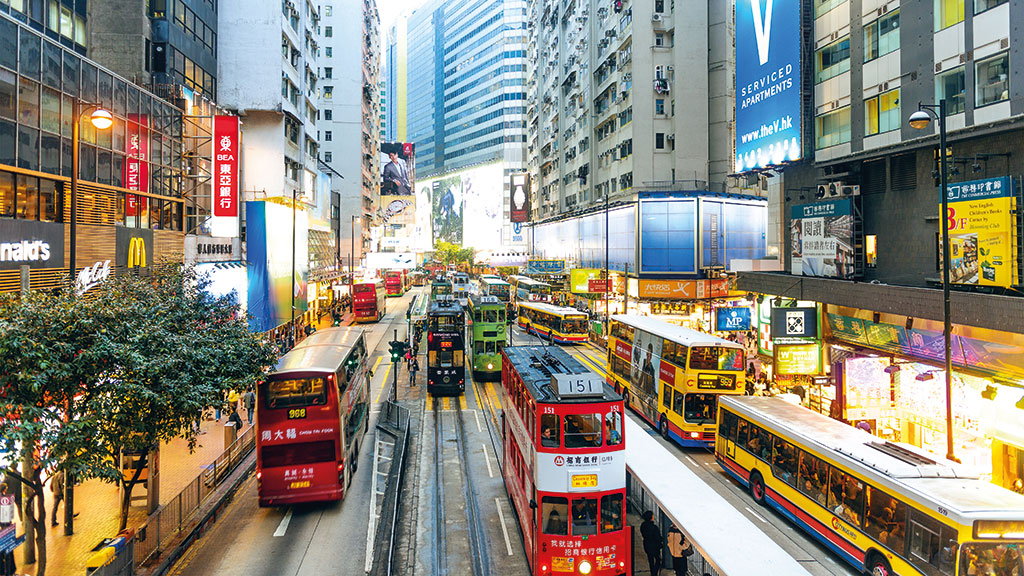Has Hong Kong become a failed state?
Hong Kong cannot protect its citizens, provide basic services or command the trust of its people, and it is failing to provide the safety and stability that a global financial centre needs.

Get the latest financial news, insights and expert analysis from our award-winning MoneyWeek team, to help you understand what really matters when it comes to your finances.
You are now subscribed
Your newsletter sign-up was successful
Want to add more newsletters?
Hong Kong is starting to resemble a “failed state”, says Clara Ferreira Marques on Bloomberg. There is “palpable anxiety” in the coronavirus-hit city, where a bungled official response, shortages of masks and toilet-paper panics remind me of Russia during the “chaotic summer of 1998”. A failing state is one that cannot protect its citizens, provide basic services and command the trust of its people. With the city reeling from anti-government protests, it “is ticking most of those boxes”.
The city is failing to provide the safety and stability that a global financial centre needs. The contrast with Singapore is stark: the prognosis for Hong Kong’s “future as a financial hub looks poor”.
Last year’s protests and a sharp decline in tourism had already pushed Hong Kong into recession, with GDP contracting 2.9% year on year in the final quarter of 2019. Now the coronavirus epidemic is making things even worse. UBS bank analysts predict a year-on-year fall of over 6% in the first quarter of this year, says The Economist. The local Hang Seng stock index is down more than 3% since 1 January and property prices are 5% below their peak. The risk now is that “speculative capital might quit the market and the city”. Falling property prices would put pressure on the banking system.
Try 6 free issues of MoneyWeek today
Get unparalleled financial insight, analysis and expert opinion you can profit from.

Sign up to Money Morning
Don't miss the latest investment and personal finances news, market analysis, plus money-saving tips with our free twice-daily newsletter
Don't miss the latest investment and personal finances news, market analysis, plus money-saving tips with our free twice-daily newsletter
Meanwhile, the loss of international and mainland visitors is inflicting a “double devastation” on local retailers, notes The Guardian. While the number of coronavirus cases in Hong Kong is relatively low for now, a more serious epidemic risks triggering a Wuhan-style lockdown. Macau and Thailand, where Chinese arrivals account for 2.7% of GDP, are also vulnerable, says Trinh Nguyen of Natixis. Other economies in Southeast Asia with significant Chinese tourist traffic include the Philippines and Vietnam.
Get the latest financial news, insights and expert analysis from our award-winning MoneyWeek team, to help you understand what really matters when it comes to your finances.
Alex is an investment writer who has been contributing to MoneyWeek since 2015. He has been the magazine’s markets editor since 2019.
Alex has a passion for demystifying the often arcane world of finance for a general readership. While financial media tends to focus compulsively on the latest trend, the best opportunities can lie forgotten elsewhere.
He is especially interested in European equities – where his fluent French helps him to cover the continent’s largest bourse – and emerging markets, where his experience living in Beijing, and conversational Chinese, prove useful.
Hailing from Leeds, he studied Philosophy, Politics and Economics at the University of Oxford. He also holds a Master of Public Health from the University of Manchester.
-
 Pensioners ‘running down larger pots’ to avoid inheritance tax as rule change looms
Pensioners ‘running down larger pots’ to avoid inheritance tax as rule change loomsChanges to inheritance tax (IHT) rules for unused pension pots from April 2027 could trigger an ‘exodus of large defined contribution pension pots’, as retirees spend their savings rather than leave their loved ones with an IHT bill.
-
 Why do experts think emerging markets will outperform?
Why do experts think emerging markets will outperform?Emerging markets were one of the top-performing themes of 2025, but they could have further to run as global investors diversify
-
 UK wages grow at a record pace
UK wages grow at a record paceThe latest UK wages data will add pressure on the BoE to push interest rates even higher.
-
 Trapped in a time of zombie government
Trapped in a time of zombie governmentIt’s not just companies that are eking out an existence, says Max King. The state is in the twilight zone too.
-
 America is in deep denial over debt
America is in deep denial over debtThe downgrade in America’s credit rating was much criticised by the US government, says Alex Rankine. But was it a long time coming?
-
 UK economy avoids stagnation with surprise growth
UK economy avoids stagnation with surprise growthGross domestic product increased by 0.2% in the second quarter and by 0.5% in June
-
 Bank of England raises interest rates to 5.25%
Bank of England raises interest rates to 5.25%The Bank has hiked rates from 5% to 5.25%, marking the 14th increase in a row. We explain what it means for savers and homeowners - and whether more rate rises are on the horizon
-
 UK inflation remains at 8.7% ‒ what it means for your money
UK inflation remains at 8.7% ‒ what it means for your moneyInflation was unmoved at 8.7% in the 12 months to May. What does this ‘sticky’ rate of inflation mean for your money?
-
 Would a food price cap actually work?
Would a food price cap actually work?Analysis The government is discussing plans to cap the prices of essentials. But could this intervention do more harm than good?
-
 Is my pay keeping up with inflation?
Is my pay keeping up with inflation?Analysis High inflation means take home pay is being eroded in real terms. An online calculator reveals the pay rise you need to match the rising cost of living - and how much worse off you are without it.